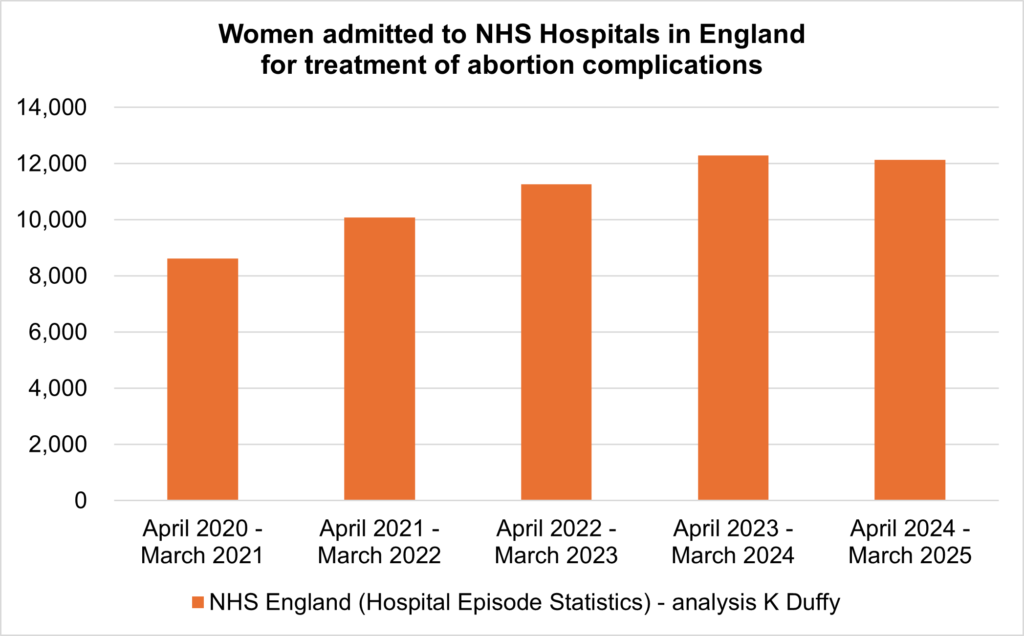(Society for the Protection of Unborn Children) — More than 54,000 women in England have been admitted to NHS hospitals for treatment following complications linked to abortion pills since the government introduced pills-by-post in 2020.
Analysis of official data from NHS England and the Office for Health Improvement and Disparities (OHID) shows that 1 in 17 women who manage their abortion at home require hospital care for incomplete abortions or other serious side-effects.

Despite the scale of the problem, neither the government nor abortion providers report these figures annually, leaving many women unaware of the risks they face. NHS data published in September 2025 showed that 12,140 women were admitted to hospital for abortion-related complications in 2024–25 alone, following a steady year-on-year rise since the scheme’s launch.
Most abortions in England now occur at home, with 75 percent self-managed in 2022. The two largest providers, BPAS and MSI Reproductive Choices, claim the failure rate is between 2 and 3 percent. However, manufacturers of the abortion drugs state the risk is significantly higher, warning of a 4.5 to 7.8 percent chance of failure requiring surgical intervention.
READ: Heir to Louis XVI denounces France’s euthanasia plan: ‘I’m pro-life. At all stages’
The government has also admitted that its own reporting is incomplete. In 2023, OHID published a one-off report comparing abortion notification figures with hospital admission data and found a dramatic discrepancy: just 300 complications were reported through the Abortion Notification System, compared with more than 11,000 admissions recorded by hospitals. Ministers have since declined to publish such data annually, despite the fact that producing the figures takes minutes and could ensure women are properly informed.
In response, Lord Moylan introduced a Private Members’ Bill in the House of Lords that would require the government to publish annual reports on abortion complications, using both hospital and notification data. The Office for Statistics Regulation has also agreed to conduct a compliance review of how complications are recorded, but it is not expected to begin until 2026.
Campaigners argue that women cannot give informed consent if the risks are downplayed, and that deliberately minimizing these dangers is unacceptable.
SPUC thinks it interesting that BPAS has now joined the throng of activist academics calling for the extension of the pills-by-post scheme to 12 weeks. When telemedicine is so clearly harming women it’s baffling to think anybody could ignore their plight.
Reprinted with permission form the Society for the Protection of Unborn Children.

















